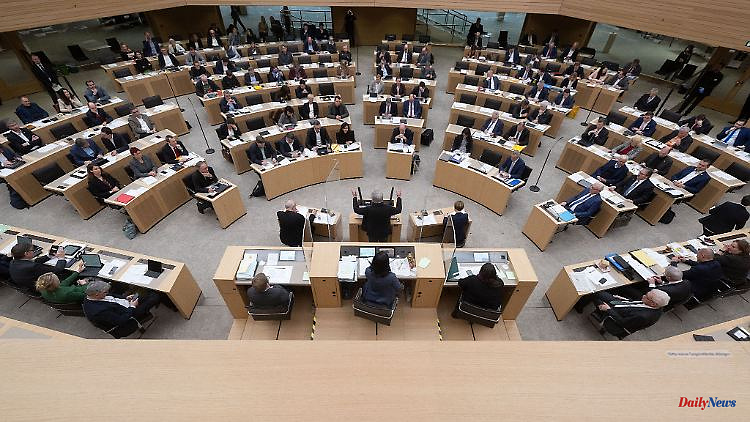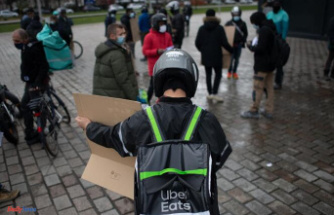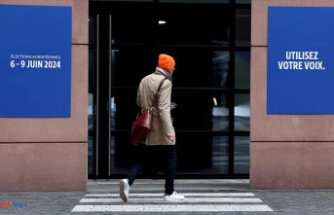The Liberals are fighting against a bloating of the state parliament. Parliament will vote on its own downsizing on Wednesday.
Stuttgart (dpa / lsw) - The members of the Baden-Württemberg state parliament vote on Wednesday (4:10 p.m.) to reduce the number of constituencies in the southwest by almost half. It is a move by the Liberals, who want to prevent parliament from being bloated. Instead of 70, there should only be 38 constituencies in the future, analogous to the federal election. However, a rejection of the draft law by the other parliamentary groups is considered likely. The party is therefore planning a referendum with the same goal.
Group leader Hans-Ulrich Rülke, who is also deputy state chairman, announced that he would start the referendum immediately after the proposal was rejected. "As soon as the state parliament has rejected the draft law, the referendum will begin," he told the dpa. "The preparations are already underway." The Epiphany party conference of the Southwest FDP decided that in the event that the members of the Greens, CDU and SPD were not willing to set a limit on parliamentary growth. "Because it can't be that politicians are encouraging citizens to save, but parliaments are getting fatter," said Rülke.
Instead of currently 154 and potentially over 200 MPs in the future, the Liberals emphasized in advance that they want to work towards compliance with the target size of 120 MPs. It must be prevented that the state parliament grows to an XXL format after the next state election, said Rülke. "The last time that the state parliament of Baden-Württemberg met its target size of 120 MPs was in 1972," he said. "Since then, like a Russian matryoshka doll, he's grown bit by bit."
The Liberals fear a further increase in the number of MPs as a result of the electoral law reform that was passed just a few months ago. Almost a year ago, the voting age was lowered to 16 and two-vote voting rights were introduced in Baden-Württemberg. With the first vote, the constituency candidate is elected directly. The second vote goes to a party, which draws up a state list for it - this gives the parties more influence in the choice of candidates. The distribution of seats in the state parliament is determined by the second vote. Depending on the number of direct mandates a party has, a balance and thus more seats in parliament will be necessary in order to achieve a distribution of seats according to the second votes.
The FDP would also be affected by a reduced number of constituencies. "Of our 18 MPs, 10 are directly affected, four-fifths of them the parliamentary group board," said Rülke. He urged the other factions to agree. "Because if that doesn't happen, it's the population's turn. Because then a referendum will start, giving the citizens the opportunity to vote on whether they prefer a state parliament of the target size or an XXL parliament, which costs much more, but doesn't brings more democracy."
The other factions had been critical of the reduction in constituencies. Greens, CDU, SPD fear above all for the citizen proximity. Among other things, it was noted that fewer constituencies meant that each MP would represent more citizens.
Citizens can initiate a referendum with a referendum. They can use it to bring their own bills into parliament and force a vote. For the approval of a referendum, 10,000 signatures from eligible voters in Baden-Württemberg are required. The application will be examined by the Ministry of the Interior. If it goes through, the second step is to collect the signatures of ten percent of those eligible to vote in the southwest within six months - that's around 780,000 men and women.
Once this has been done, the draft law will be submitted to the state parliament for a vote. If he does not find a majority, a referendum will follow. The decisive factor is what the majority votes for in the referendum. In addition, a referendum in Baden-Württemberg is only valid if at least one fifth of those entitled to vote approve the proposal (approval quorum).












